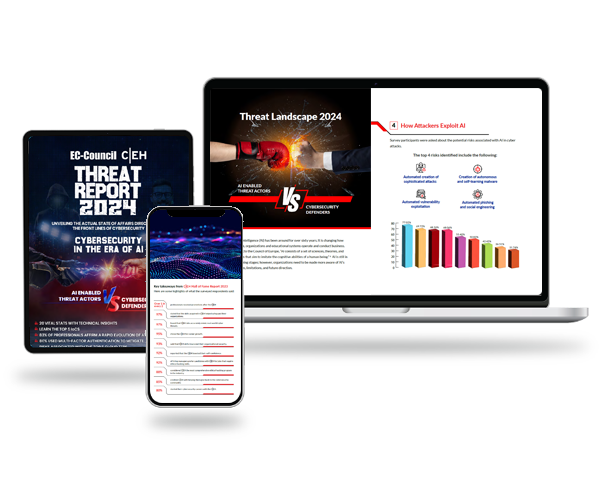- 087 941 5764
- impactful@lrmg.co.za
Articles

Love this. Share it Now!
Africa is poised to become a global player in this fast-paced digital era, where technology evolves at an unprecedented rate. However, the continent still faces a critical challenge: a shortage of skilled professionals to harness the power of technology for sustainable growth.
This is not merely a concern for the present; it’s a crucial factor that will shape Africa’s destiny well beyond 2050. The focus on skills development, talent cultivation, and youth empowerment has never been more critical for businesses looking to thrive in this dynamic landscape.
In our first article in this series, we unveiled the underlying causes of Africa’s skills gap, ranging from fundamental infrastructural challenges to a shortage in the talent pipeline and a lack of accessible learning opportunities. As we shed light on the increasing challenges confronting businesses, we also emphasised the exceptional potential for revolutionary change starting from the grassroots level.
In our second article, we discussed how the human aspect of progress is inseparable from the technological revolution.
In this, our third chapter, we will delve deeper into why skills development, talent and youth empowerment is so critical in the African context, as we ask what kind of skills are critical to meeting not only this need, but fundamental growth and improvement as well.
Projections indicate that by 2050, Africa is destined to boast the largest youth population globally, a demographic reality that emphasises the continent’s potential as a driving force in the global economy. Remarkably, estimates suggest that nearly 60% of Africa’s population will be under the age of 25. This demographic dividend, however, is a double-edged sword, with the potential to either propel the continent to unprecedented heights or exacerbate existing challenges if not harnessed effectively.
The urgency to harness this demographic dividend lies in the strategic alignment of skills development with the evolving demands of the job market. The Fourth Industrial Revolution, characterised by rapid technological advancements, artificial intelligence, and digital transformation, is reshaping industries and creating new opportunities. To ensure that Africa’s youth can actively participate in and contribute to this transformative landscape, a deliberate focus on honing skills that are relevant and adaptive becomes paramount.
Skills development is not merely a response to current market needs but a forward-looking investment in human capital. By equipping the youth with the tools and knowledge required to navigate the complexities of the digital age, Africa can position itself as a global hub of innovation and expertise. This is not just about addressing immediate employment needs but about nurturing a generation capable of driving sustainable economic growth, fostering innovation, and overcoming future challenges.
In the realm of tech skills, African organisations prioritise data, developer, and cybersecurity expertise. Cybersecurity ranks highest across regions, except in Nigeria, where 67% emphasise Design Thinking. South Africa underscores the need for cybersecurity skills, with 73% of organisations expressing the demand. Larger enterprises, constituting 77% of those with 1000 or more employees, particularly seek cybersecurity proficiency.
Digital transformation specialists are also highly sought after, with 48% of organisations, rising to 60% in larger enterprises, emphasising the need for these skills. Across regions, 63% identify cybersecurity and data skills as essential, with 49% specifically seeking more developer skills.
A concerning trend emerges as 69% of organisations foresee a potential tech skills gap. Change management skills, crucial for digital transformation success, are undervalued, with only 18% listing them as in-demand, ranging from 10% in Kenya to 27% in Nigeria.
Industry-specific skills are fiercely contested, with 49% of organisations seeking more, rising to 63% in Kenya and 57% in Nigeria. Additionally, artificial intelligence and machine learning skills are in demand for a third of organisations. The evolving tech landscape demands a diverse skill set, urging organisations to bridge these gaps for future success.
Several forward-thinking businesses and organisations have recognised the urgency of addressing the skills gap in Africa. Notably, tech giants like Microsoft, Google, and IBM have initiated various programmes aimed at providing training and mentorship to aspiring IT professionals across the continent. These initiatives often extend beyond major urban centres, reaching into underserved regions to ensure inclusivity.
For instance, Microsoft’s Africa Development Center, located in Nairobi, focuses on driving innovation and skill development by collaborating with local universities and tech communities. Google’s Launchpad Accelerator Africa supports early-stage tech startups through mentorship and funding, contributing to the growth of the continent’s entrepreneurial ecosystem.
While certificates and competency are essential markers of proficiency, the human aspect of IT skills development should not be overlooked. The ability to collaborate, communicate effectively, and adapt to a rapidly changing technological landscape is equally crucial. Organisations and Chief Information Officers (CIOs) must not only seek technical prowess but also consider the soft skills that foster teamwork and innovation.
In this context, a holistic approach to skills development becomes imperative. Beyond formal education and certification programmes, businesses should encourage a culture of continuous learning and provide opportunities for employees to enhance their interpersonal skills. Investing in leadership development and emotional intelligence contributes to creating well-rounded IT professionals who can navigate the complexities of the modern workplace.
As businesses grapple with the consistent and constant skills gap, the role of solutions partners becomes paramount. A solutions partner goes beyond traditional training programmes, offering a collaborative and tailored approach to address specific skill deficiencies within an organisation.
These partners work closely with businesses to understand their unique challenges and objectives. Through customised training programmes, mentorship initiatives, and ongoing support, solutions partners play a pivotal role in bridging the gap between the skills currently available in the workforce and those needed for future success. The emphasis is not only on providing theoretical knowledge but on practical, hands-on experience that prepares individuals for real-world challenges and the very means they’ll need to enable meaningful progress.
In the next chapter of this series, we’ll explore how our principle of ‘The Golden Circle’ emerges as a crucial principle in enhancing human performance, emphasising the profound significance of belonging and feeling connected to a larger purpose. In the context of IT and tech skills, the interconnectedness of these abilities with human belief, fulfilment, and potential becomes game-changing.
Recognising this relationship is not only a professional necessity but a civic responsibility for individuals across the continent. The key to unlocking and retaining future talent lies in creating the right environment, implementing effective modes of work, establishing conducive structures and programmes, and offering progressive support and development.
"Investing in skills development is not just about preparing for tomorrow; it's about empowering the youth of today to become the leaders and innovators of the future."
























































